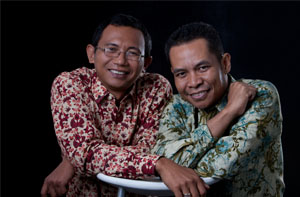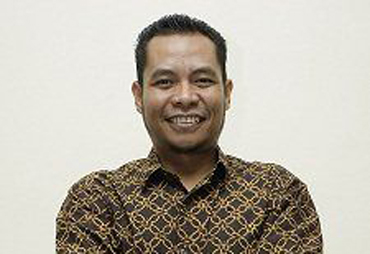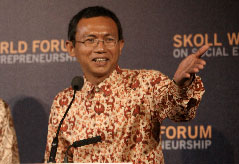Telapak pursues market-based solutions to socio-environmental problems through scalable community-based enterprises: community logging, community fisheries, and local media and broadcasters.
Community-based forest management ends the scourge of illegal logging and results in sustainable management of natural resources.
Demonstration and Replication Telapak promotes independent as well as supported replication.

President, Telapak
Founder, Telapak
Ambrosius Ruwindrijarto (Ruwi) and Silverius Oscar Unggul (Onte) are known as leaders in efforts to shift Indonesia from illegal logging to community-based logging. Ruwi co-founded Telapak in 1997, reporting on illegal logging in Indonesia’s national parks to raise awareness of the issue, both internationally and domestically. In 2006, Ruwi teamed with Onte, a community organization expert, to shift Telapak from raising awareness to rolling out solutions in the form of community-based sustainable resource management. Telapak was first organization in Southeast Asia to help achieve group certification for logging cooperatives. It employs a comprehensive cultural, economic and political approach—engaging communities to manage their own agro-forestry enterprises, which provides economic incentive to sustain their forests.
In 2012, both Ruwi and Onte stepped down from their positions. Their successor as Telapak’s president, Khusnul Zaini, was a former minister of law and politics with the Indonesian government.
Telapak’s community logging co-op model is being replicated by more than 50 communities across Indonesia. Two have gained FSC certification, and more are in the process. Where these co-ops operate, illegal logging has been reduced drastically, tree coverage increased significantly, and the welfare of the local community has improved. The number of illegal sawmills in Sulawesi District has been reduced from 75 to zero.

